
Swiss watchmaking industry grapples with spike in US trade tariffs
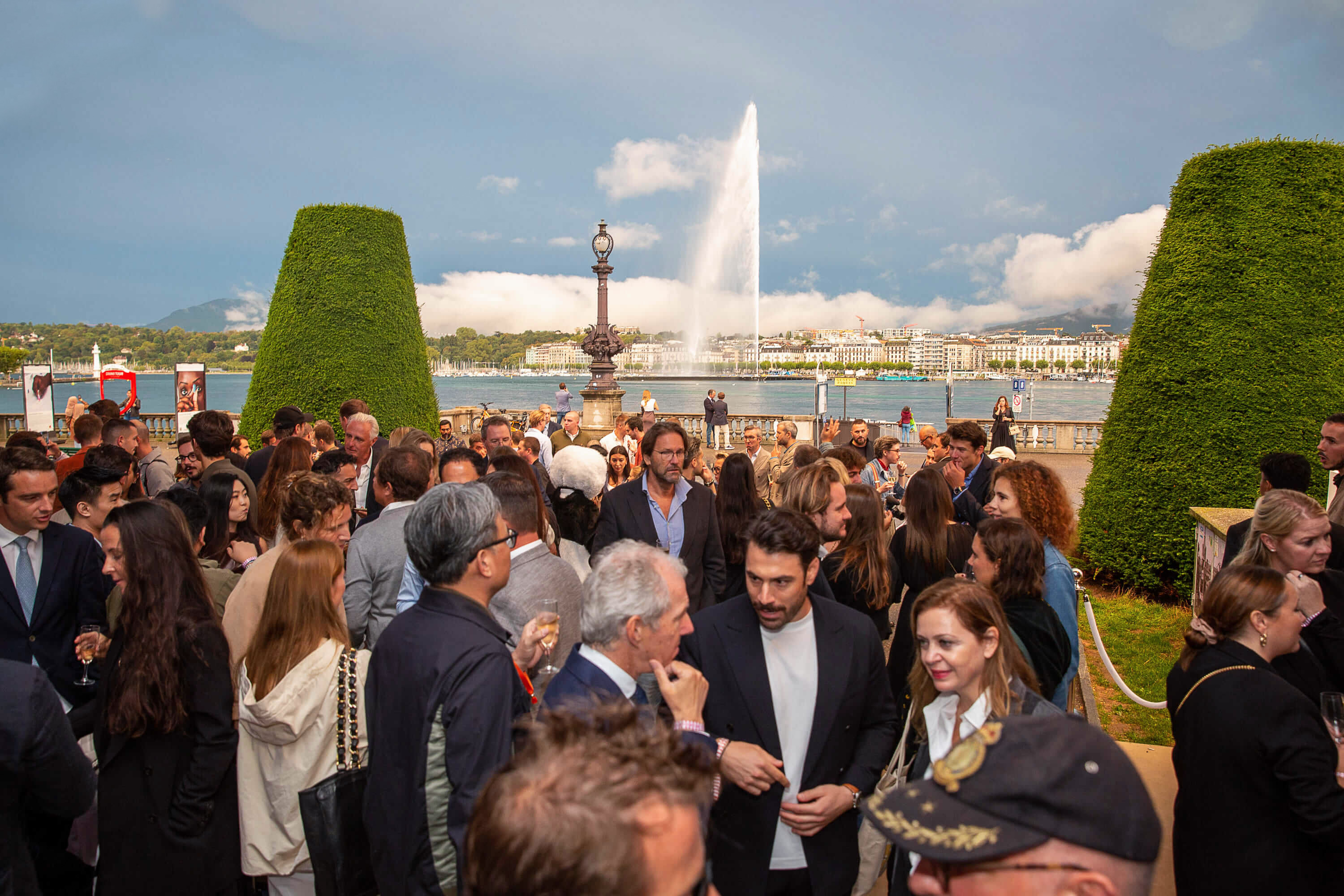
The 39% tariffs on Swiss exports to the United States, introduced in August, are a heavy blow for Swiss watchmakers. Industry journalist Alexey Tarkhanov went to the Geneva Watch Days trade fair to get a feel for the mood.
The announcement had already cast a shadow over Swiss National Day, August 1. One month later, during the Geneva Watch Days 2025External link, which ran from September 4-7, the question was on everybody’s lips, even overshadowing the launch of new collections: what will become of these watches on the US American market, the main destination for Swiss timepieces since the Chinese slowdown from 2022?
Watchmaking accounts for around 7% of total Swiss exports, and nearly 17% of the value of watch exports goes to the United States. In 2024 this represented more than CHF4.3 billion ($5.4 billion).
Several major brands already upped their prices in spring in response to the strong Swiss franc and the introduction of an initial 10% tariff. With the new duties announced by US President Donald Trump on August 1, the cost is likely to become prohibitive for many customers, undermining demand for Swiss watches across the Atlantic.
“Together we are pressuring the federal government to keep negotiating for a better agreement. It is shocking to see that the European Union is taxed at 15%, while we are subject to 39%. We are therefore calling for further talks,” said Delphine Bachmann, responsible for economic affairs for the Geneva cantonal government, at the opening of the fair.
Some hope that Bern will achieve an alignment with the tariffs applied to its European neighbours: 15% for the EU and 10% for the United Kingdom. Others are counting on the US justice system: a federal appeals court has ruled that some of the taxes are illegal, while provisionally maintaining them until October 14, pending a decision by the US Supreme Court.

More
How Trump is manoeuvring Switzerland closer to the EU
Perfect target for Trump
Watchmakers are up in arms about the disproportionate nature of the measure: Switzerland has received the fifth-highest tariffs worldwide, between Burma and Iraq.
“I can’t see Switzerland living with a 39% tariff rate,” says Georges Kern, CEO of Breitling. “I remain confident that this problem will be resolved, or partially resolved, in the coming weeks or months. We should have a backup plan in case it lasts, but let’s stay positive.”
Oliver Müller, a watch expert at LuxeConsult, is not as upbeat. “You can send highly skilled ambassadors to negotiate for months on end. But in the end, it’s Donald Trump who decides alone, often on a whim.”
Strategic sectors such as pharmaceuticals and gold may continue to escape tariffs, Müller believes. Watches, on the other hand, as luxury items with no vital value, are “a perfect target for populist measures”.
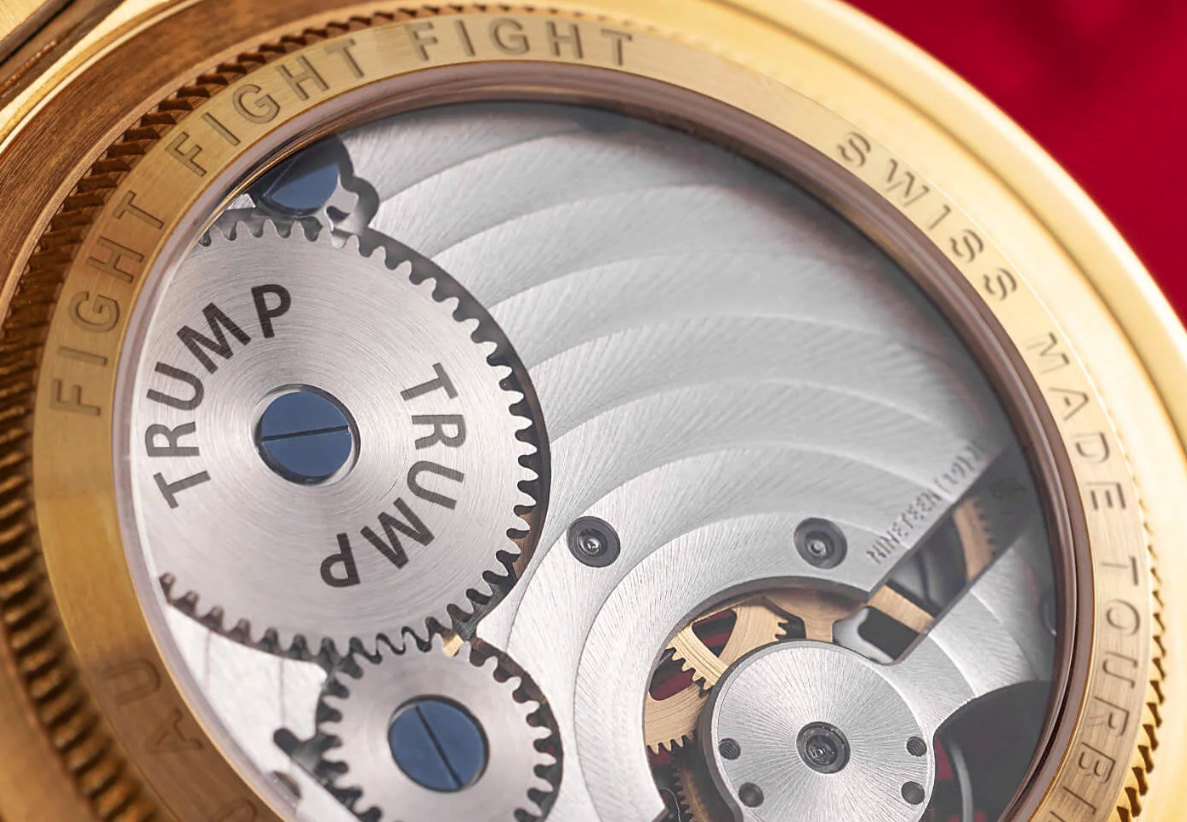
The figures published by the Federation of the Swiss Watch Industry (FH) may seem paradoxical. In April, exports to the United States doubled compared to March, reaching CHF853 million. However, this surge was triggered by a desire to build up stocks before the tariffs came into effect.
Few observers believe that these exceptional levels can be maintained. The FH’s next monthly report, due on September 18, will reveal the extent of the downturn in sales.
No common approach
Faced with this situation, Swiss watchmakers’ strategies range from silence to confrontation to circumvention. Should prices be raised just in the United States? Should the additional costs be shared with local distributors? Or should prices be increased everywhere so that the US market remains competitive? No common line has yet emerged.
The most sought-after models from Rolex, Audemars Piguet and Patek Philippe will easily find buyers elsewhere. In the United States, customers on waiting lists will even benefit from reduced competition. But for most watchmakers, it’s a bitter pill to swallow.
The leaders of LVMH’s watch brands (Bulgari, Hublot, Zenith) are avoiding comment, deferring to the caution displayed by Bernard Arnault, the French luxury group’s CEO. “We cannot afford to fall out with the United States,” he told French newspaper Le Figaro in July.External link
Provocative proposal by Hayek
On the other hand, Nick Hayek, CEO of the world’s largest watch manufacturer, Swatch Group, advocates taking the bull by the horns. With three to six months’ worth of stock on the US market, he proposed in an interview with the Swiss daily BlickExternal link that a 39% tax be slapped on gold exported to the United States. This, he believes, is Trump’s “Achilles heel”.
Hayek also warned that excessively high tariffs would prompt American consumers to buy their watches abroad or duty-free, which would ultimately harm the interests of retailers in the United States.
>> Read more about the state of play for the Swiss watchmaking industry in our explainer:
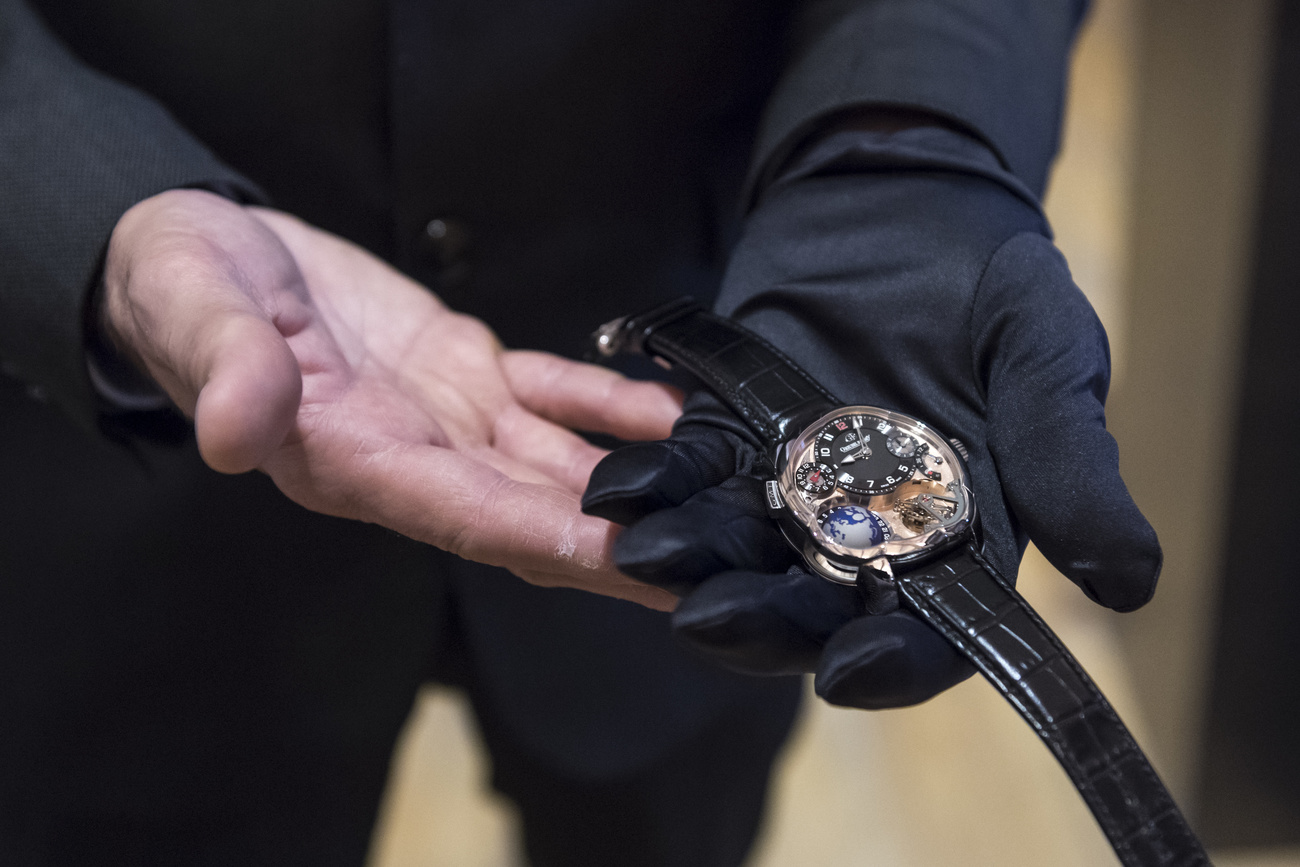
More
Swiss watchmaking: where things stand
Some watchmakers are considering circumventing the tariffs by working through the EU, where the rate is half as high. This seems a plausible option, as many brands belong to international groups. Thus, watches by Chanel, Dior, Louis Vuitton and Bell & Ross are both French and Swiss; Richemont owns the Parisian houses Cartier and Van Cleef & Arpels, as well as the German company A. Lange & Söhne, and the Swatch Group owns the German manufacturer Glashütte Original.
Move production abroad?
Some alliances are forming. Swiss watch-movement manufacturer La Joux-Perret is already collaborating with French watchmaker Humbert-Droz. The “Made in France” label is also much less stringent than “Swiss Made”. In France, there is no requirement that 60% of the watch’s value be of domestic origin, but only that a “final substantial transformation” take place in the country.
This could further the emergence of competitors, but Manuel Emch, director of Louis Erard, puts things into perspective. “Our expertise can be used, but no other country has such a comprehensive ecosystem. Germany, France and the UK have excellent watchmakers, but the production volume is small. They will not replace Switzerland, even with this indirect support from the United States.”
Manufacturing directly in the United States, as Louis Vuitton has done for its leather goods, is virtually impossible: watchmaking requires a highly skilled workforce, which is hard enough to come by in Switzerland.
Some brands are nevertheless considering making some adjustments, for instance turning their American subsidiaries into full-fledged distributors, in order to import at wholesale prices and reduce the final tariff. This is the path chosen recently by British brand Christopher Ward, which manufactures in Switzerland.
Louis Erard is thinking of doing the same. But, as its director Emch points out, for any real changes to be worth introducing, the tariffs would have to be considered definitive. The Trump administration will only be there until 2028.
On Sunday, September 7, US President Donald Trump attended the US Open final at the invitation of watchmaker Rolex. At the game, the company’s CEO Jean-Frédéric Dufour spent several hours with the US president, according to reports by the CH Media press group. Several international media outlets also reported on the event. The White House declined to comment on why Trump accepted the invitation.
Source: Keystone-ATS
More
Edited by Samuel Jaberg. Adapted from French by Julia Bassam/ts

In compliance with the JTI standards
More: SWI swissinfo.ch certified by the Journalism Trust Initiative
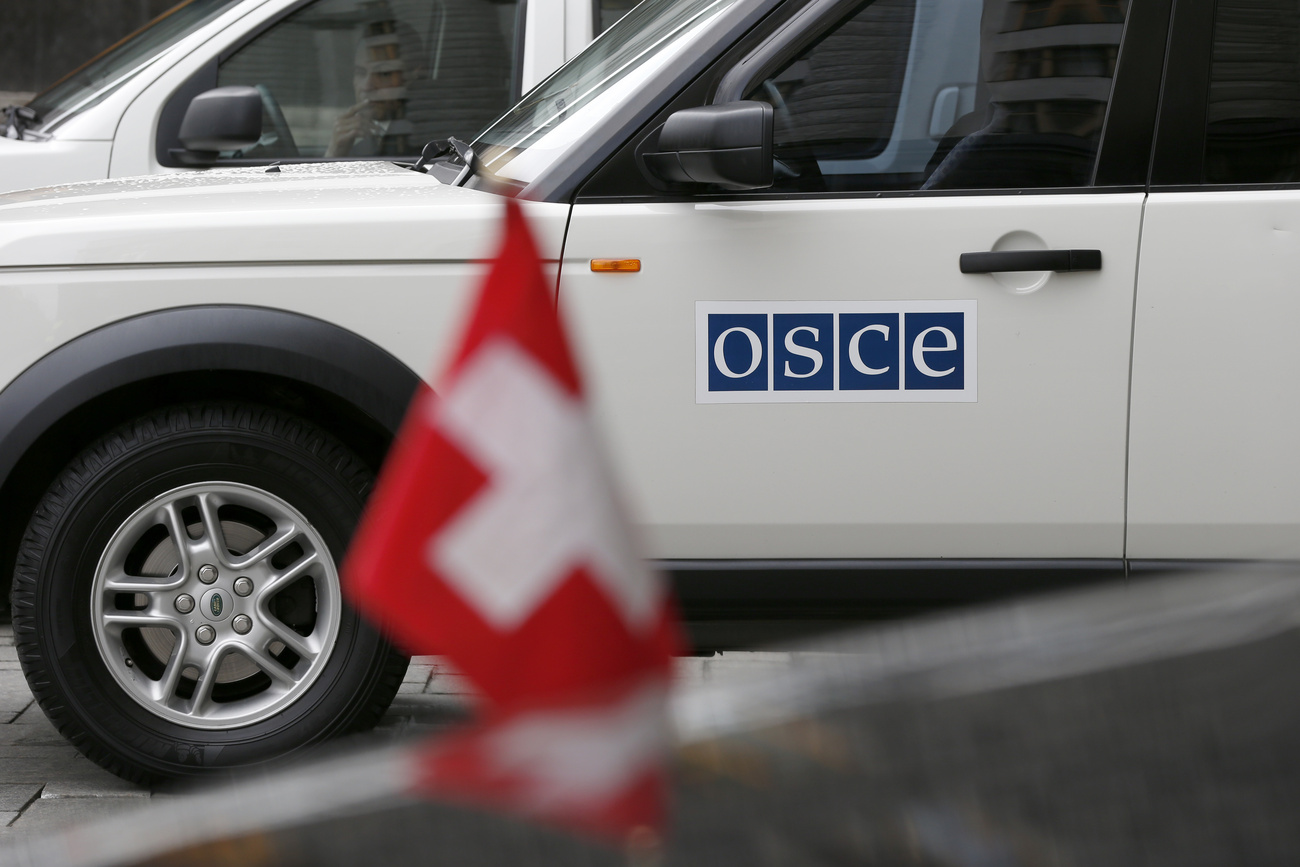









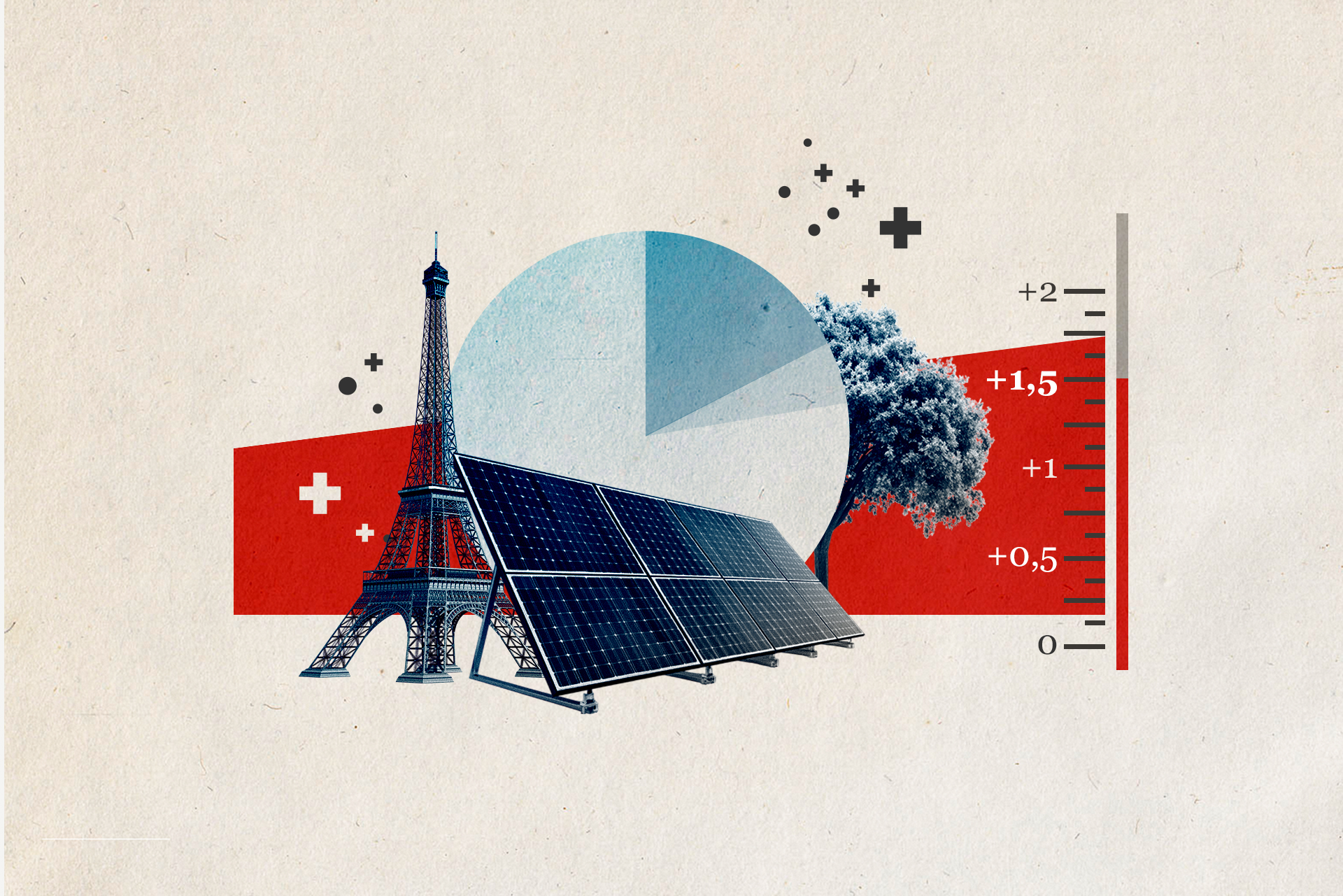

















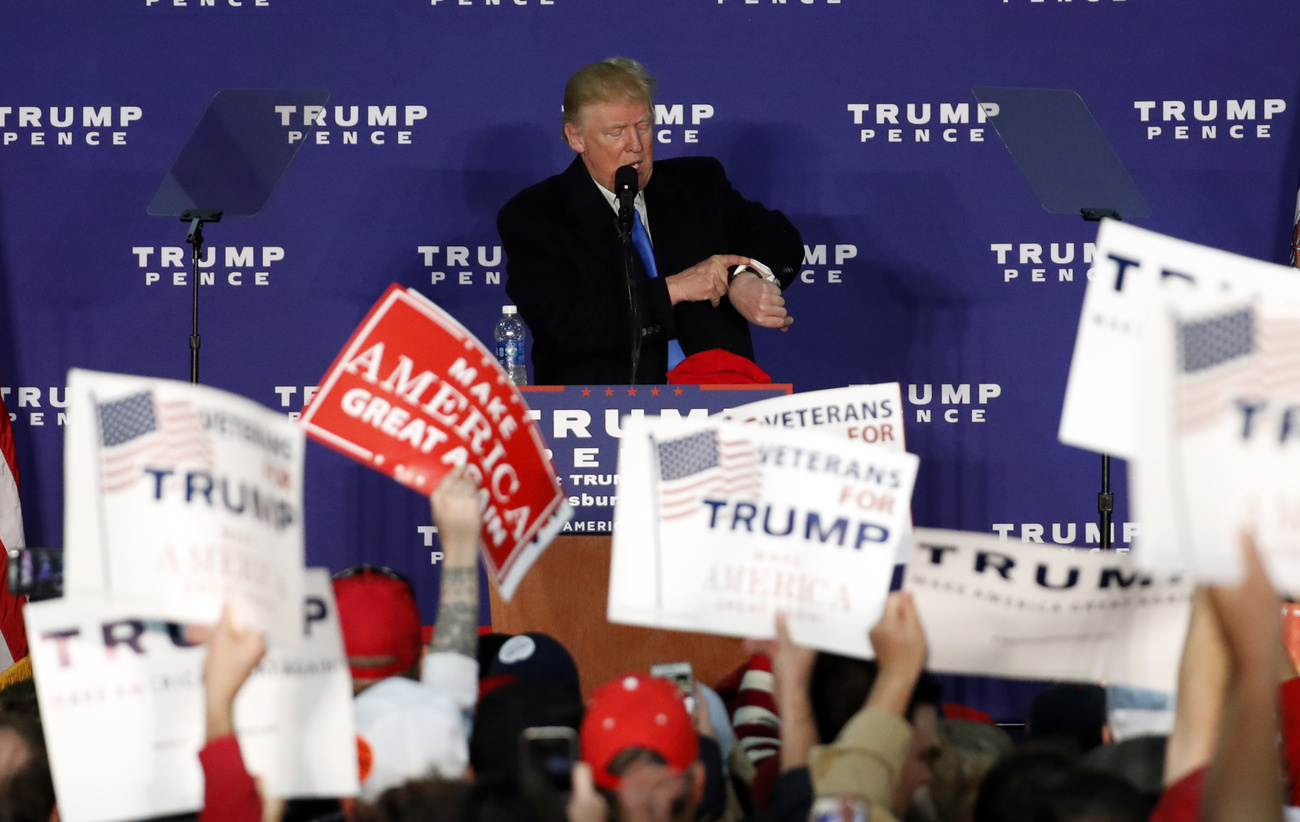

You can find an overview of ongoing debates with our journalists here . Please join us!
If you want to start a conversation about a topic raised in this article or want to report factual errors, email us at english@swissinfo.ch.